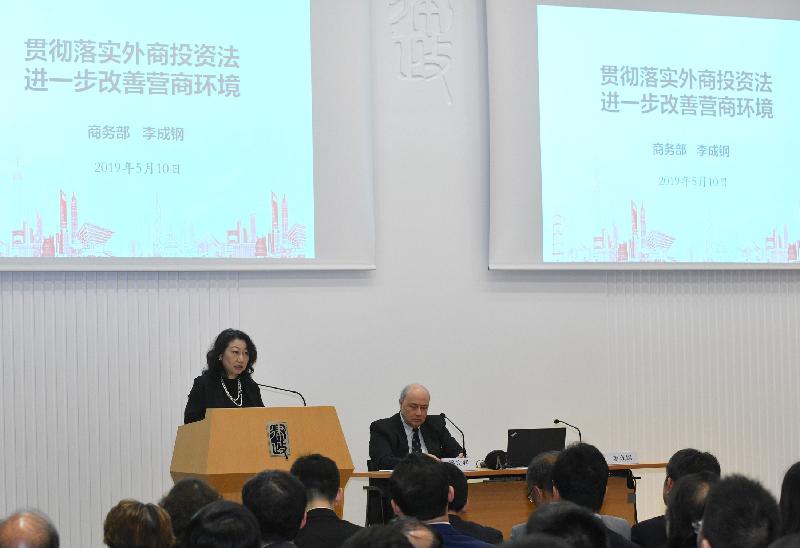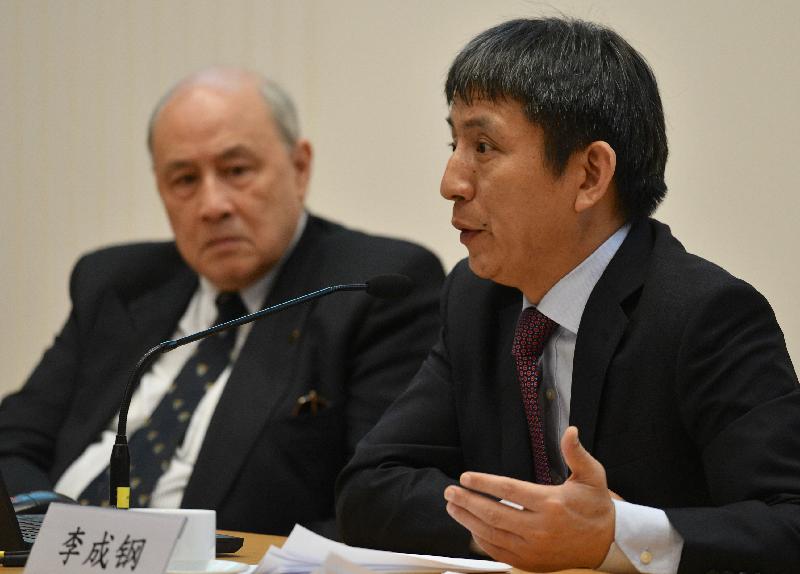Talk on Foreign Investment Law of the People’s Republic of China held (with photos)
The talk on the Foreign Investment Law of the People's Republic of China, which was adopted at the 2nd Session of the 13th National People's Congress on March 15, 2019, and will be implemented in the Mainland on January 1, 2020, was held today (May 10) for government officials of Hong Kong and stakeholders to understand more about this Law. The talk was jointly held by the Department of Justice (DoJ) and the Asian Academy of International Law (AAIL) at Justice Place.
The Secretary for Justice, Ms Teresa Cheng, SC, first gave welcoming remarks at the talk. The Assistant Minister of Commerce, Mr Li Chenggang, then gave a presentation on the rationales for enacting the Foreign Investment Law, its key features, how to fully implement the Foreign Investment Law and how to create a better business environment for investment from Hong Kong. During the question-and-answer session of the talk, the Chairman of the AAIL, Mr Anthony Neoh, SC, had exchanges with Mr Li on issues on the Foreign Investment Law that are of interest to the participants. The talk successfully enhanced the participants' understanding of the Foreign Investment Law.
The Foreign Investment Law aims to promote foreign investment, protect the legitimate interests of foreign investment and standardise the management of foreign investment. The Hong Kong community generally welcomes the Foreign Investment Law.
Over 140 people, including senior government officials, representatives from local and foreign chambers of commerce, business leaders, professionals and arbitration institutions attended the talk.
One of the key policy initiatives of the DoJ is to enhance Hong Kong's status as the regional legal services and dispute resolution centre. The DoJ is committed to assisting Hong Kong's legal and dispute resolution services professionals to seek new opportunities in the Mainland, the Guangdong-Hong Kong-Macao Greater Bay Area and countries along the Belt and Road Initiative, and to strengthen co-operation and mutual benefits under the advantage of "one country, two systems".

